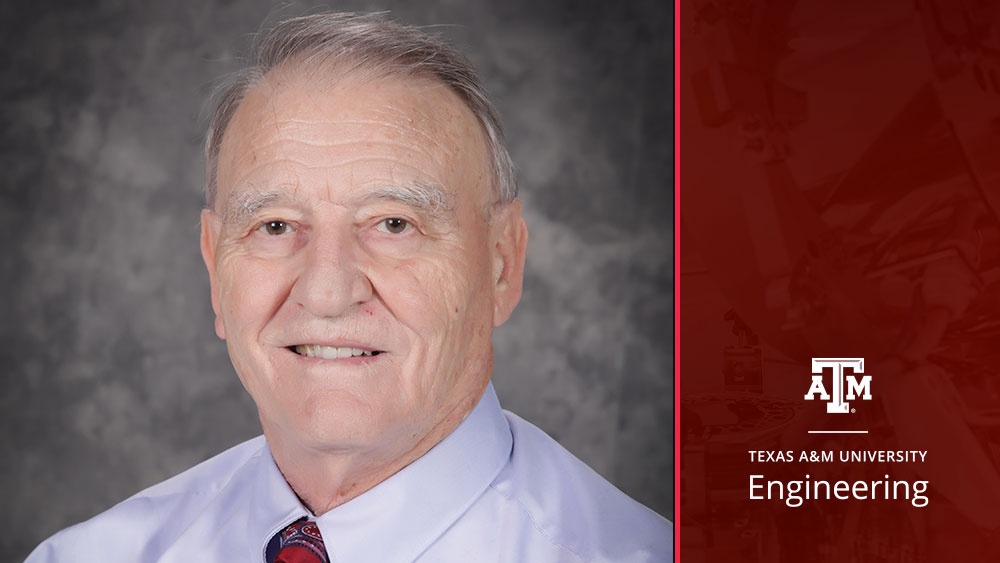
The American Institute of Aeronautics and Astronautics (AIAA) announced the 2022 recipients of its most prestigious awards, the AIAA Premier Awards. Among the recipients is Dr. Terry Alfriend, University Distinguished Professor and holder of the Jack E. and Frances Brown Chair II in the Department of Aerospace Engineering at Texas A&M University. Alfriend will receive the Goddard Astronautics Award on April 27 at the AIAA Awards Gala at the Ronald Reagan Building and International Trade Center in Washington, D.C.
Alfriend was given the award “for extraordinary contributions and advancements in the fields of orbital mechanics and space situational awareness.” The award was endowed by Esther Goddard to commemorate her husband, Robert H. Goddard, whose early liquid rocket engine launches set the stage for the development of astronautics. It is the highest honor bestowed by AIAA for notable achievement in the field of astronautics.
“My interest in space was piqued with the launch of Sputnik and a high school physics class,” said Alfriend. “Physics was the first science class I had that I liked, and it made science interesting.”
That interest led him to 60 years of diverse experience in the aerospace field, including research, development and management in the private sector, government and academia. Over those years, he has garnered recognition for his contributions. He is a member of the National Academy of Engineering and is an Honorary Fellow of the AIAA. In 2016, he received the Texas A&M Association of Former Students Research Award and the AIAA Guidance, Navigation and Control Award. He has also received the AIAA Mechanics and Control of Flight Award, the American Astronautical Society (AAS) Dirk Brouwer Award and the American Association for the Advancement of Science International Scientific Cooperation Award. Additionally, he was the editor-in-chief of two prestigious journals in aerospace dynamics — the AIAA Journal of Guidance, Control and Dynamics and the AAS Journal of Astronautical Sciences.
After receiving his bachelor’s degree from Virginia Tech, Alfriend began his professional career at Lockheed Missiles and Space Company in Sunnyvale, California. His initial assignments were in the dynamic analysis of satellite separation systems, which cemented his desire to continue working in dynamical systems. While working at Lockheed, he completed his master’s at Stanford and was transferred to Lockheed in Huntsville, Alabama. After a hiatus from school for one year, he returned to Virginia Tech to obtain a doctoral degree. He then moved into academia as an assistant professor in the Department of Theoretical and Applied Mechanics at Cornell University.
In 1974, Alfriend took a position at the Naval Research Laboratory (NRL) and made his first move into management. With positions at the NRL, CIA and the General Research Corp., he spent the next 20 years supporting the Department of Defense and the intelligence community in space. However, his itch for academia returned, and in 1994, he took a visiting position at the Naval Postgraduate School as the Navy Tactical Exploitation of National Capabilities Chair. In 1997, he accepted the offer to be the head of the aerospace engineering department at Texas A&M.
In 2002, after managing in the private sector, government and academia, he returned to his enthusiasm for research and teaching. For the past 25 years, his research has been focused on space domain awareness and the dynamics, control and navigation of satellite formations. The latter subject resulted in the book, “Satellite Formation Flying: Dynamics, Control and Navigation,” of which he is a co-author.